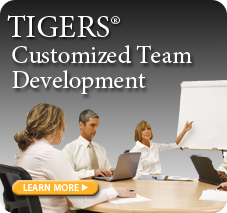
According to Gallup’s report, How Millennials Want to Work and Live, this reputation may not be completely unfounded. The report finds that only 29 percent of millennials are engaged in their work, and the generation has the highest rate of unemployment and underemployment in the United States. Although the employment gap is closing since the recession, the bad wrap could be because of what they want and desire in the workplace.
Research found that millennials not only want steady and engaging jobs, but they also want to have high levels of well-being, meaning they want healthy, purposeful lives, as well as financial stability and strong community and social ties. Because of their high expectations, millennials typically hold little loyalty to companies that fall short in providing job engagement and well-being. They are willing to switch jobs in search of satisfying their needs and wants. With this in mind, there are several strategies that leaders can implement to build strong relationships and encourage company loyalty with their millennial employees for long term attraction and retention.
Team building strategies for leading millennials
Encourage mentoring.
Younger employees can greatly benefit from mentoring by more experienced employees and leaders. Not only do mentors have more experience, they also have unique insights into several different areas of development, including connections for internships or jobs, advice on following a career path or even just lending an ear for struggling employees. The best mentorship relationships develop organically, However, if your organization doesn’t encourage or promote mentorship, new employees may not know where to look to find a resource. Encourage your team members to create a list of the qualities they are looking for from a mentor, and ensure that your seasoned employees and leaders are open to creating mentorship relationships with others within your organization. This type of program will help to engage your employees and encourage lasting relationships. Do keep in mind, however, that if your culture supports and rewards internal competition between employees, mentorship is difficult to build within your work culture. The fear of being replaced by talented younger employees overshadows the best mentorship intentions.
Encourage gratefulness.
Not everyone is grateful all of the time, but promoting a business culture that encourages gratefulness can go a long way in creating engaged and satisfied employees. Starting your day off with a moment of gratefulness can help to set the tone for the day. In the workplace, you can help your employees feel grateful in a number of ways. Company-wide volunteer events, for example, can help your employees gain some perspective in their own lives, which can help to promote both recognition and gratitude. On a smaller scale, you can create an anonymous board in which employees can post the things that they are grateful for, or you can encourage employees to share their successes during company meetings. When your employees notice the good things in their lives, they will be more satisfied and engaged.
Offer flexibility across departments.
Typically, when you hire someone, you hire them for a specific position in a specific department. But this may not be the best approach with millennials. Many millennials switch jobs because they view their 20s as a time for self-discovery, and many don’t have a specific career path nailed down. They are waiting longer to lay down roots, including marrying, purchasing homes or having children, and their 20s are really viewed as a time to find where they want to be career-wise long term. Because of this, many millennials are seen as job hoppers. One way that you can potentially avoid a talented employee leaving is by offering her the opportunity to job hop within your company. Once employees are trained and on-boarded to their positions, give them the opportunity to work cross-functionally, giving them the opportunity to experience other sections of your company. This type of approach requires flexibility, but it may be one way that you can encourage employees to stay with your company long term while building your talent pool for strategic company growth initiatives.
Millennials may have a bad reputation, but at the core, they are passionate and want to perform fulfilling duties that make an impact on the world around them. As an leader, understanding what drives this generation will advance your organization, as well as their careers. With team building strategies for leading millennials, you can build a millennial-friendly culture that engages your employees. Some strategies include: encouraging mentorship between new and seasoned employees; encouraging a culture of gratefulness; and offering flexibility across departments to allow employees to pursue their passions. With these tips, you may find that your employees stick around longer and are more satisfied and engaged with their positions.
For more ideas, here are some articles that expand this conversation:
- What Millennials Want From Work and Life
- How To Find And Use A Mentor
- Four Ways Talented 20-Somethings Are Building Great Careers
- Command Your Day: The Morning Routines Of 7 Successful-But-Human Millennial Entrepreneurs
- Boost Team Morale To Improve Performance
Copyright TIGERS Success Series, Inc. by Dianne Crampton
 About TIGERS Success Series, Inc.
About TIGERS Success Series, Inc.
TIGERS® Success Series provides a comprehensive and robust system for improving both your work environment and profitability. We specialize in workplace enrichment and employee re-invigoration management facilitation methods that builds workforce cooperation and high performance team dynamics. Scaled to grow as your organization and leadership performance grows, our proprietary Team Behavior Profile and leadership training workshops are based on the six principles we have found to be the right mix to make this happen. The six principles are Trust, Interdependence, Genuineness, Empathy, Risk and Success. Born from our many years of business, psychology, and educational group dynamic research, and subsequent four years of independent evaluation, we instill and sustain behaviors that improve work group performance and talent retention for measurable ROI.
Since 1987, TIGERS has served committed leaders who desire enhanced cooperation among departments, teams, managers and individual employees. This heightened level of cooperation leads to improved revenue, purpose, commitment and impact. Employees quit companies because they don’t get along with leaders and co-workers. Work culture refinement and behaviors that build strong relationships erase this trend remarkably fast. For more information call 1+541-385-7465 or visit https://corevalues.com .